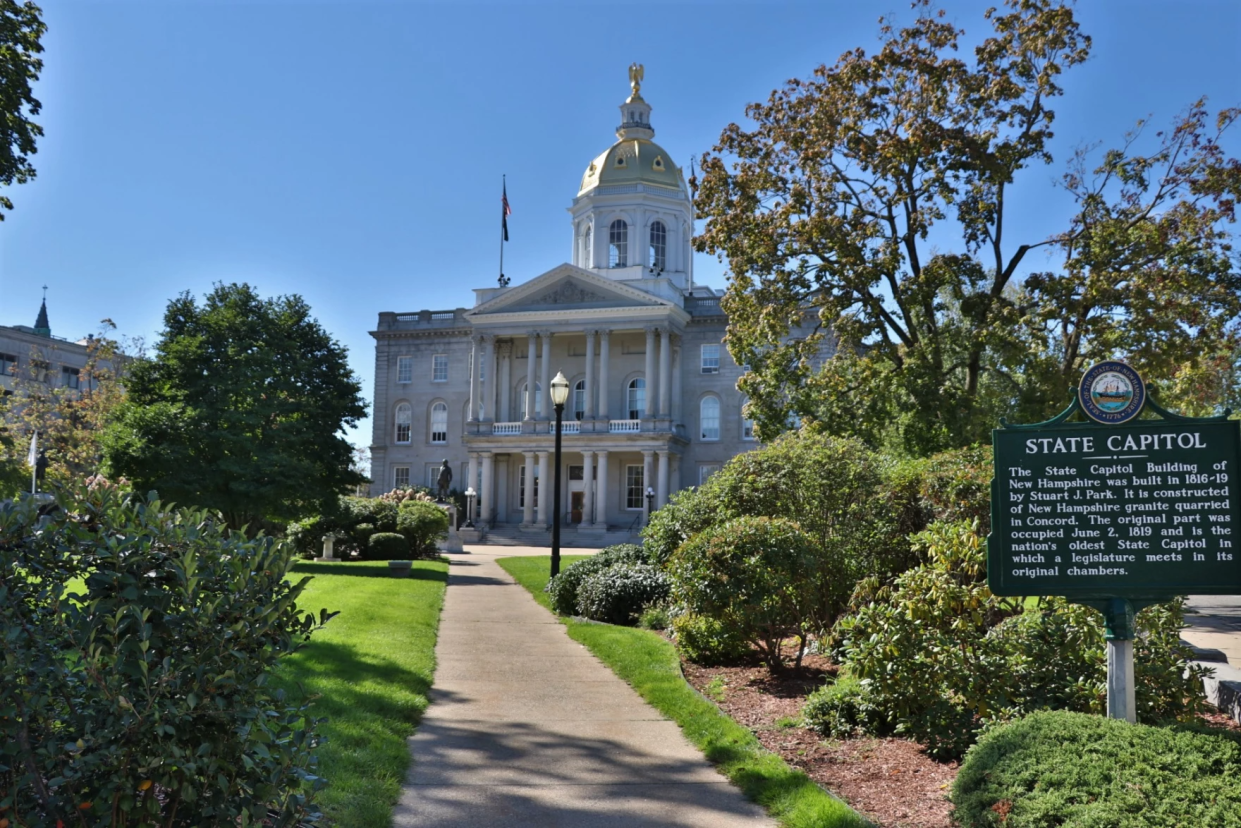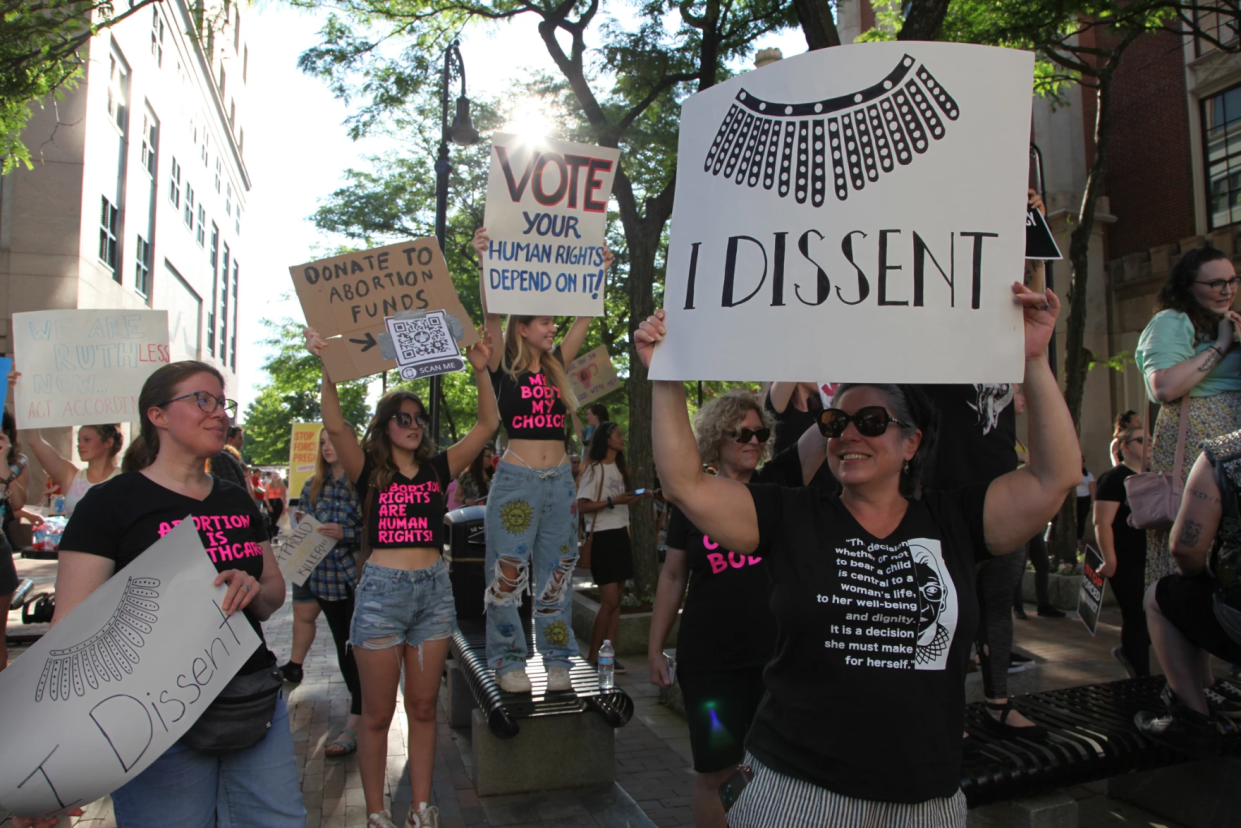NH abortion data collection bill latest flare-up over reproductive rights
On a party-line vote, Republicans in the New Hampshire Senate recently approved a bill that would require abortion providers to share certain data about the procedures they perform with state public health officials.
Forty-six other states already have similar laws in place, making New Hampshire an outlier in the dissemination of abortion statistics.
“I've heard debates on the floor many times that we just don’t have the information, we don’t have the data,” Republican Sen. Regina Birdsell said on the Senate floor last week. “Well, guess what: This will do it.”

But for Democrats, the proposal, which was added late in the legislative process and therefore not subject to a public hearing, is the GOP’s latest attempt to chip away at abortion rights and curtail personal freedoms.
“Ever since the Dobbs decision, we have been living in a dystopian horror show with control of pregnant bodies the main plot line,” Democrat Sen. Debra Altschiller said during debate on the measure.

New Hampshire Republicans have tried unsuccessfully numerous times in recent years to require abortion providers to release certain statistics. The latest effort calls for providers to share the date and location of each abortion, the method used, including if a medication was prescribed, as well as share the state of residence of the pregnant patient, and the gestational age of the fetus.
The state Department of Health and Human Services would then publish data annually on abortions in New Hampshire, though the bill doesn’t clarify if the information would be released in an aggregated form, or if the county or even the zip code of the provider would be disclosed.
Democrats argued that level of data shared publicly could put providers at risk for harassment or other targeting; they also questioned how gestational age should be determined by the provider, since the bill lacks any detail.
“This amendment would potentially require a government-forced, potentially medically unnecessary, intrusive trans-vaginal ultrasound,” Sen. Becky Whitley said during a debate last Friday that grew tense at times. “That should send chills down the spine of every woman in the state.”
Senate Majority Leader Sharon Carson, a Republican, rose to her feet, saying she was baffled by the claim.
“I can’t believe what I’m hearing here. I really and truly cannot,” said Carson. “There’s no requirement for any kind of testing here. No ultrasound, no nothing.”
Carson accused Democrats of spreading misinformation about the bill, and in a statement this week reiterated that an ultrasound is not the only way providers could determine age in compliance with the bill.
In practice, providers say ultrasounds are performed before abortions when it makes sense for the patient. But there are other ways to determine gestational age, including using the date of the last menstrual cycle. States including Maine, Massachusetts and Vermont permit abortion providers to estimate the age of the fetus using that information.

A tool for sound policy, or for scoring political points
Abortion providers in New Hampshire say they aren’t opposed to producing and sharing protected, anonymized data, as long as it is used to advance public health policy.
“However, where we need clarity whenever we consider the request to supply abortion data is really we need to know specifically or with some clarity, what the anticipated public health benefit is and how the data may be used,” said Sandi Denoncour, executive director of Lovering Health Center in Greenland.
Abortion rights supporters point to what they see as a history of states using reporting requirements to bog down abortion providers with paperwork. Other states have also required providers to collect invasive or what they see as irrelevant information about the patient, including their history of contraceptive use.
“They're not really being used for public health purposes,” said Rachel Jones, a researcher with the Guttmacher Institute, one of the country’s leading research institutions on abortion. “They're being used to further stigmatize abortion and increase the burden on the facilities that provide this care.”
While New Hampshire, along with California, Maryland and New Jersey are the only states that don’t have reporting mandates, Guttmacher’s website does maintain abortion statistics for procedures performed in New Hampshire.
In 2023, Guttmacher estimates there were 2,400 abortions performed in the state.
That data is based on voluntary reporting by local clinics, including Lovering Health Center and Planned Parenthood of Northern New England.
Those clinics willingly share aggregate abortion numbers, they said, because they trust Guttmacher to use the data for research purposes.
After clearing the state Senate on a party line vote, the bill mandating reporting statistics now heads to the New Hampshire House, where it will get a full public hearing and could be amended.
Gov. Chris Sununu has previously said he supports the state collecting data.
These articles are being shared by partners in The Granite State News Collaborative. For more information visit collaborativenh.org.
Editor's note: State Sen. Debra Altschiller, D-Stratham, is the wife of Howard Altschiller, Seacoast Media Group's executive editor.
This article originally appeared on Portsmouth Herald: NH abortion data collection bill latest reproductive rights fight
